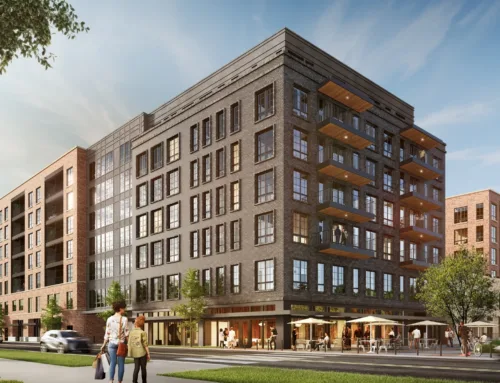The raucous festivities at Swiss Avenue’s only non-residential mansion may mean the end of an early 20th century home’s open door policy.
The number of early 20th century Dallas homes in their original condition and open to the public can be counted on one hand. The Aldredge House is one of these, sitting on the corner of Swiss and Parkmont in the city’s first historic district.
It is the only residence among the historic mansions of Swiss Avenue that is non-residential. Yet neighbors, who use the Aldredge House for meetings, have co-existed happily with their non-residential neighbor for more than four decades.
Until recently, that is, when this chummy relationship experienced a public falling out.
The Aldredge family gifted their home to the Dallas County Medical Society Auxiliary in 1973, the same year the Swiss Avenue Historic District officially was recognized and became protected by the city. Since that time, the estate has played host to numerous nonprofit and educational gatherings, both for the auxiliary (now the alliance) and others. It also is a standing feature on the annual Mother’s Day home tour. And in more recent years, it has grown increasingly popular as a local wedding venue.
So popular, in fact, that in 2014, the Aldredge house was rented out for 64 commercial events, including 48 weddings. It was enough to send six of the alliance’s closest neighbors past their breaking point. Late this summer, they formally complained to the city that they were tired of the late-night, boozy receptions with blaring music, firework send-offs and “other inappropriate behavior.” Essentially, they told the city, such disturbances “are not appropriate on this historic residential street.”
They wanted the Aldredge House, the only “nonconforming” use in residential Swiss Avenue, to start conforming to the rules.
Anyone can sympathize with the frustration of living next door to a party scene. Whether you live in a stately mansion on Swiss Avenue or a hip apartment on Lowest Greenville, everyone wants a little peace and quiet, not to mention a good night of sleep. There’s the familiar “you knew what you were moving next door to” argument, but it’s fair to say that the Aldredge House’s neighbors weren’t acquiescing to a frat house environment when they bought property near an almost century-old nonprofit.
On the face of things, it seems fairly cut and dry: The Aldredge House should forgo its raucous receptions and return to its days as a tea room for the high society women who run the alliance — at least, that’s what neighbors who filed the complaint have insinuated.
There are some surprising twists in this saga, however. The first came when former councilwoman Angela Hunt opted to represent the alliance. Hunt is the primary champion of Lowest Greenville reform, and though revered by many Greenville neighbors, she also was criticized roundly for superimposing city policies on local businesses so that she and her neighbors wouldn’t have to worry as much about broken beer bottles and urinating college students defacing their property.
Yet, a few weeks ago, there was Hunt, on prime time news, defending an organization that purportedly had created Lowest Greenville types of problems on Swiss Avenue.
Next, Preservation Dallas added the Aldredge House to its list of “most endangered” Dallas structures, arguing that “the house is one of the few properties in Dallas where the historic integrity has not been compromised and in many ways serves as an opportunity for visitors to step back in time.” It, too, sided with the alliance, holding the opinion that weddings held at the Aldredge House don’t just benefit the nonprofit; they also benefit the general public because the money generated is used to maintain the house’s original features and furnishings, and in turn allows the house to remain open for public use.
The City of Dallas Landmark Commission then doubled down on this support from the preservation community with a vote to create a planned development district (PD) for the Aldredge House that would save more than the house’s exterior, which already is protected by virtue of it being situated in the Swiss Avenue Historic District. The commission went one step further by laying out a process for preserving the architectural characteristics of the home’s front rooms as well.
“I felt like I wanted to help declare that this is an important public asset worthy of preservation,” says Katherine Seale, the commission’s chairwoman. “Regardless of a late night party, the building is still a public good; it still provides value to the public.”
So is the Aldredge House a public asset, as preservationists claim, or a public nuisance, as its closest neighbors claim? Perhaps both, and this kind of “frictional adjacency” is a common problem around the country and the world, Seale says, for historic homes located within residential neighborhoods. They have to constantly reimagine and retool so that they can remain relevant to the public and continue to be a public good, she says.
“If they’re just taking care of their plastered ceilings and polishing their wood, they’re not going to be a good neighbor,” Seale says. “A PD is an opportunity to work out these differences.”
The PD was an attempt to circumvent leaving the Aldredge House’s fate in the hands of the Dallas Board of Adjustment, but it may be too late. At press time, both formal mediation and informal talks were taking place between the two sides in hopes of finding a resolution before the complaint went before the board.
The board comprises Dallas City Council appointees and its role is quasi-judicial; if it decides to grant or deny a request, that decision cannot be appealed to City Council, only district courts, so its vote is pretty much the final say. Plus, unlike the Plan Commission or the Park Board, the Board of Adjustment cannot be lobbied prior to a public hearing.
Most of the board’s decisions concern setbacks, landscaping and parking issues that don’t attract much news coverage. Steve Long, the board’s administrator, says nonconformance applications are rare — the board hasn’t considered one in at least three years — and those that are filed typically involve crime-ridden bars and motels.
“We’ve never considered a use such as the Aldredge House, which is a civic fraternal association use,” Long says. “This is a first.”





